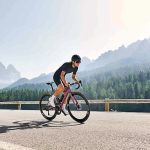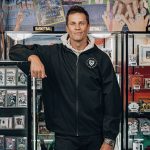When K2 Inc. acquired the Fotoball business in late 2003, KTO chairman and CEO Dick Heckman made it quite clear that the company saw a much broader role for the Fotoball management in developing licensing and promotional programs for the various brands under the K2 Inc. umbrella. In an interview with Sports Executive Weekly at Super Show last year, Heckman said he saw Fotoball becoming a service arm of the company, responding to opportunities across the business.
The company took the first step by renaming the new subsidiary K2 Licensing & Promotions to reflect its new mission, while K2LP president Scott Dickey and his team set about working with each individual division to assess the opportunities for each business. K2LP last week announced they had launched a new business division to develop licensing and corporate partnerships for K2's portfolio of more than 30 sports brands.
In an interview with Sports Executive Weekly last week, Dickey said that they are looking at both in-bound and out-bound licensing opportunities for the business.
The conversation with Dickey comes on the heels of K2LPs first corporate-wide licensing deal which sees the company ink a multi-year agreement with Marvel Enterprises for K2's Stearns, Shakespeare, and Fotoball divisions. The deal includes the North American rights to develop an assortment of sports balls, floatation devices and children's fishing sets featuring several premier Marvel franchises, including Spider-Man, the Incredible Hulk, and others.
Dickey told SEW that they could “potentially” add K2 Sports to the deal down the road, but they will need to further assess the opportunities. He pointed to a previous licensing deal between K2s Ride snowboard brand and Marvel, indicating that it did not bear much fruit.
The company also had deals in place with Nickelodeon, Mattel and Warner Bros. that came in as part of the original Fotoball acquisition. Dickey and his team are now working to extend those deals to other K2 properties where the make sense.
The company estimates that they are currently generating about $30 million in revenues.
Scott said these types of in-bound licensing opportunities are expected to fuel more organic growth for the brands, while the out-bound deals are expected to fuel bottom line revenue streams that are accretive to the current businesses. “The out-bound licensing opportunity represents a huge upside for the bottom line,” said Dickey.
According to Dickey, some obvious areas of opportunity include apparel for Rawlings, primarily in the activewear, headwear, womens and childrens area. The company already handles uniforms and performance apparel internally. He also hinted that K2 Sports could see some opportunity in licensing the brand for ice skates, ski gloves, and possibly footwear.
Marmot footwear was also seen as an opportunity down the road (if KTO doesnt buy a footwear company first).
SEW sees this model bearing fruit on the acquisition side as it enables KTO to take a closer look at how an apparel or footwear licensee services the current brand portfolio. We could easily see those licensees become K2 acquisition targets down the road if the company looks to build more top-line strength.
The K2LP team will need to do some work reconciling all the various deals across the brand platform, but Dickey said there were not a lot of skeletons in the closet. To help execute on the task, and to fuel additional opportunities, K2LP has added Robert Strand as VP of licensing and Frann Vettor-Gray as VP of corporate alliances. Mr. Strand comes from the NBA where he was recently senior director of non-apparel licensing and global premiums. Ms. Vettor-Gray worked for both Universal Studios and The Coca-Cola Company.
Dickey said the development of corporate alliances and sponsorships will be a major focus for the company as they work to partner with other companies that seek access to the markets and events where the K2 brands participate.
“Weve reached a point where we can position ourselves as a property for corporate investment,” Dickey told SEW.










